 B .
B .  C .
C . 
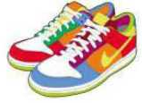 B .
B .  C .
C . 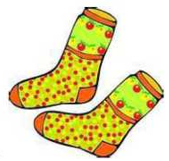
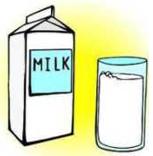 B .
B .  C .
C . 
 B .
B .  C .
C . 
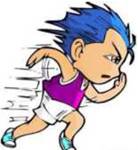 B .
B . 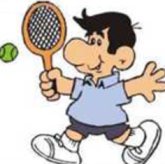 C .
C . 
—Let's see Doctor Judy, and she is not usual woman doctor.
—Sometimes. If s an interesting program, but I Sports News.
—I haven't had it yet. However, it good.
—Sure. It happened the morning of June 5th.
—For 2 years.
—Last year.
—Oh, I've just made a model plane for my brother.
When you travel in America, you should give some tips (小费) for the service. But do you know who you tip and how1? The following may help you.
For example, at a restaurant, always tip the waiter or waitress 2 15 percent and 20 percent of the total bill. If you are out for drinks with friends, make sure that you 3 cash for the waiters-usually $1 or $2 per drink is acceptable.
If there's a restroom waiter, even if you don't need their 4with handing you a towel, tip 50 cents to $3. A coat waiter should 5 $1 per coat and a valet (贴 身仆人) should receive $2 to $ 5.
At a hotel, 6 about $2 to $5 per day with a note. Even just a simple "Thank you, housekeeping" goes a long way. For all salons and barbershops, 15 percent to 20 percent of the bill is just 7.
If you have a doorman, remember to tip $1 to $4 for carrying any luggage and $1 or $2 if he 8 a taxi for you. And then tip your 9 15 percent to 20 percent of the bill at once.
Whatever you give, be sure to 10 a handwritten thank-you card for their service. And then make a note for yourself on who you tipped and how much.
Janie shakes her saving box. It is not heavy. She shakes it again. It makes a very little sound. She sighs (叹息).How can she buy Dad a present? Father's Day is corning. She goes to talk to Mum.
"Mum," says Janie, "I need money.
"What do you need money for?" asks Mum. need to buy Dad a present for Father's Day."
"I will not give you the money,n says Mum. "I will help you to earn (赚) it." "What do I have to do?" asks Janie.
"You can help me," says Mum. "You can help with housework. I will make a list of jobs. When you do a job well, I will give you the money according to the list."
"OK. That, s a good idea," says Janie.
Mum quickly makes a housework list: sweeping the floor, $2; washing socks, $1; making the bed, $1; washing the dishes, $2; taking out the rubbish, $1; cutting the grass in the garden, $3; tidying the room, $3.
After that, Janie helps with housework every day happily. "What a pleasant surprise my father will have when he gets the present!" Janie often thinks.
Last Friday a storm swept through two villages in the New Territories, destroying (摧毁) fourteen homes. Seven others were so badly damaged (被损坏的) that their owners had to leave them, and fifteen others broken windows or broken roofs. One person was killed, several were badly hurt and taken to hospital, and a number of other people received smaller hurt. Altogether over two hundred people were homeless after the storm.
A farmer, Mr Tan, said that the storm began early in the morning and lasted for over an hour. was eating with my wife and children, he said, "when we heard a loud noise. A few minutes later the house fell down on top of us. We tried our best to climb out but then I saw that one of my children was missing. I went back inside and found him, safe but very frightened."
Mrs Woo said that her husband had just left for work when she felt that her house was moving. She ran outside at once with her children.
"There was no time to take anything," she said. "A few minutes later, the roof came down."
Soldiers helped to take people out of the flooded (水淹的) area and the welfare department (福利机构) provided them with food, clothes and shelter.
Many years ago, there lived a very rich man who wanted to do something for the people of his town. But first he wanted to find out whether they were good enough to get his help. So he placed a very large stone in the center of the main road into town. Then he hid behind a tree and waited.
Soon an old man came along with his cow. "Who put this stone in the center of the road?" said the old man, but he did not try to move the stone away. Instead, he passed around the stone and continued on his way. Another man came along and did the same thing; then another came, and another. All of them complained (抱怨) about the stone in the center of the road, but none of them tried to move it away.
Late in the afternoon, a young man came along. He saw the stone and said, "It will be very dark at night. Some people will come along later in the dark and will fall against the stone."
The young man then began to move the stone. He pulled with all his strength to move it to one side. But imagine his surprise when he found a bag full of money and a message under the stone: "This money is for the thoughtful person who takes this stone away from the road. Thank you."
|
A. How about taking planes there? B. Which hotel do you want to stay in? C. Yes, it is quite all right. D. Will you please fill out this form? E. Which one would you like to choose? F. And it's very quiet. G. And it's quite cheap. |
A: Morning! What can I do for you?
B: We'd like to make a trip for a weekend holiday, please.
A: There are many travel paths.
B: We'd like to choose Huangshan Mountain.
A: It's one of the most famous mountains in China. It's really a nice place to visit.
B: We have no idea. Which hotel do you think is comfortable?
A: The Peace Hotel is very good. I think it's the most important of all.
B: Good. We don't want to live in a dear hotel.
A:
B: All right. T II ask my wife to fill out this form. By the way, is it OK if we pay by credit card (信用卡)?
A: Enjoy your weekend.
B: Thank you.
一没问题,先生。
—Can you have the car ready for me by 5 o'clock?
—, sir.
Bill alwayswriting for a living.
They listened to the professor's speech.
You canthe Greensa Beijing siheyuan.
Nowadays, Chinese people love to travel to foreign countries. Some people may say they can do everything they want because they spend money in the country. In fact, this is not true. Besides enjoying ourselves, we should respect local customs and care for the environment. How to be a good tourist when traveling abroad? Let's take a look!
It's impolite to talk loudly in public places like coffee shops and museums.
It is good manners to give tips (小费) when you travel in most Western countries.
Don't spit or litter. Stop yourself from writing or drawing on famous buildings.
You shouldn't take your shoes off when taking a plane.
It isn't good to change seats while the plane is taking off. Also it's not good to reach for your luggage (行李) while the plane is landing.
You mustn't cross the road before the traffic lights are green.
In a self-service restaurant, don't take too much food. Wasting food is not a good idea.
|
Bad manners (不良行为) that we should avoid when traveling abroad Talking in public. Refusing to give tips. Spitting and littering everywhere. Writing or drawing on buildings. off your shoes during a flight. Changing seats while the plane is taking off and getting luggage while the plane is landing. Crossing the road when the traffic lights are still. Taking more food than you need in a restaurant. |
Nothing is impossible to a willing heart. A short video about seven people wearing prosthetic devices (人造装置) who have t a desert race challenge has become popular.
The seven disabled people jin the 108 - kilometer desert race from May 11 to14 in Dunhuang, Northwest China's Gansu Province. Six of the seven had one leg amputated (截肢),and ohad two legs amputated.
Cheng Baojun, a man from Luohe, Central China's Henan Province, the double amputee, said he never i he could take part in the desert race. "It is great. I can do it, and you can also." "It is easy to say, but walking it is h." Cheng said. On the first day, they finished a complete section of 27 kilometers of the race, and on the second day, they finished 20 kilometers.
"My legs were painful while I was walking. We also met with a very big sandstorm on the way. But s it was a challenge, we could not g up. We all encouraged each other to continue." he said. After getting t, they rested on the third day and walked on the fourth.
Lao Tongyi walked the longest of the group, a distance of more than 70 kilometers. Team leader Sun Naicheng said that they had to pass through depopulated (人烟稀少的)areas of the Gobi Desert. He also added that team members challenged themselves and realized their d.
They are good efor everyone to learn from. It's up to you how far you go. If you don't try, you will never know.
1)时间和地点
内容:1)汉语学习
2)中国历史和传统文化等
3)……(务必拓展至少一个活动)
4)报名方式和截止日期
注意:
1)文章必须包括所给的全部内容;适当增加细节,以使行文连贯。
2)词数 80520。
参考词汇:汉语夏令营:a Chinese Summer Camp